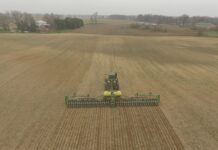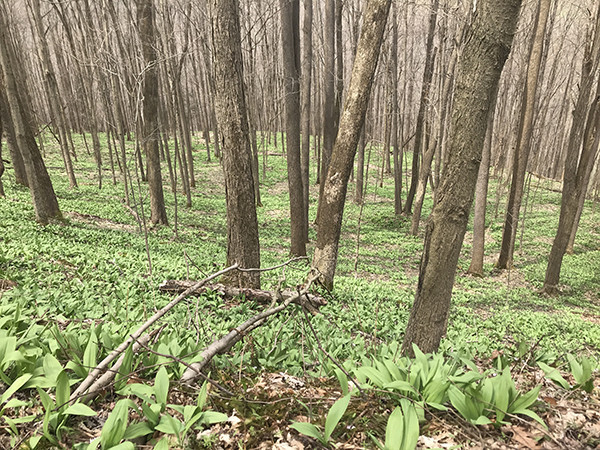UNIVERSITY PARK, Pa. — The presence of a new species of ramp, Allium burdickii — commonly known as narrow-leaved wild leek — has been documented in southwest Pennsylvania by a team of Penn State researchers in a new study. This plant species never before has been documented in the state, and the researchers suggest the discovery shows a need to protect the remaining populations of the plant.
The more common and well-known broader-leafed ramp species, Allium tricoccum, is widespread in the state and often collected. Eaten for thousands of years by Native Americans, ramps are valued for their strong garlic-like aroma and onion-like flavor. More recently, they have become popular among foodies and restaurant chefs, leading to increased demand by urban consumers.
Origins
Allium burdickii likely has been in Pennsylvania a long time, said team leader Eric Burkhart, associate teaching professor in the Department of Ecosystem Science and Management. His research group in the College of Agricultural Sciences has been studying the distribution and abundance of forest herbs such as ramps, goldenseal and ginseng for nearly two decades.
Because Allium burdickii has thinner leaves, grows in slighter dryer locations and flowers earlier than Allium tricoccum, scientists and perhaps most collectors just missed it, Burkhart said.
“From a conservation standpoint, because we’re finding A. burdickii in urban areas around Pittsburgh to date, the populations appear to be relatively small and localized — and they are vulnerable,” said Burkhart, who is director of the Appalachian Botany and Ethnobotany Program at the Penn State Shaver’s Creek Environmental Center. “Because of development in the region, and the high demand for ramps, we need to educate the public about the need to recognize and conserve them.”
Location
Researcher Cassie Stark, who spearheaded the study as a master’s degree student, studied four populations each of Allium tricoccum and Allium burdickii in southwestern Pennsylvania, and compared and contrasted the habitats where they were found.
She documented the soil fertility and moisture and site characteristics, such as topography, associated with sites where each species of ramp grew. Also, she recorded the presence of other plants growing with the ramps.
In findings published July 26 in Natural Areas Journal, the researchers reported that Allium tricoccum is associated with north-facing slopes and higher soil moisture content throughout the growing season, whereas Allium burdickii was found on a variety of facing slopes. Soil pH and nutrient content were greater at Allium burdickii sites than Allium tricoccum sites, suggesting the former may rely more heavily on nutrients such as calcium.
The most common overstory tree associated with both ramp species was sugar maple, but understory flora differed. Wet-soil-preferring species, including blue cohosh and wood nettle, were associated with Allium tricoccum, whereas dry-soil species — including mayapple and false Solomon’s seal — were associated with Allium burdickii.
The researchers also think Allium burdickii tastes and smells a bit different than Allium tricoccum, Burkhart said, and research underway will focus on comparing the chemistry profiles of the two ramp species. A graduate student is working in the laboratory of Penn State food science researchers to study the difference.
Sarah Nilson, assistant professor of biology at Penn State Beaver, located the first verified population of Allium burdickiiin the state and is a co-author on the paper. This research was supported by a Wild Resource Conservation Program grant from the Pennsylvania Department of Conservation and Natural Resources.
(Information courtesy of Jeff Mulhollem, Penn State extension)













